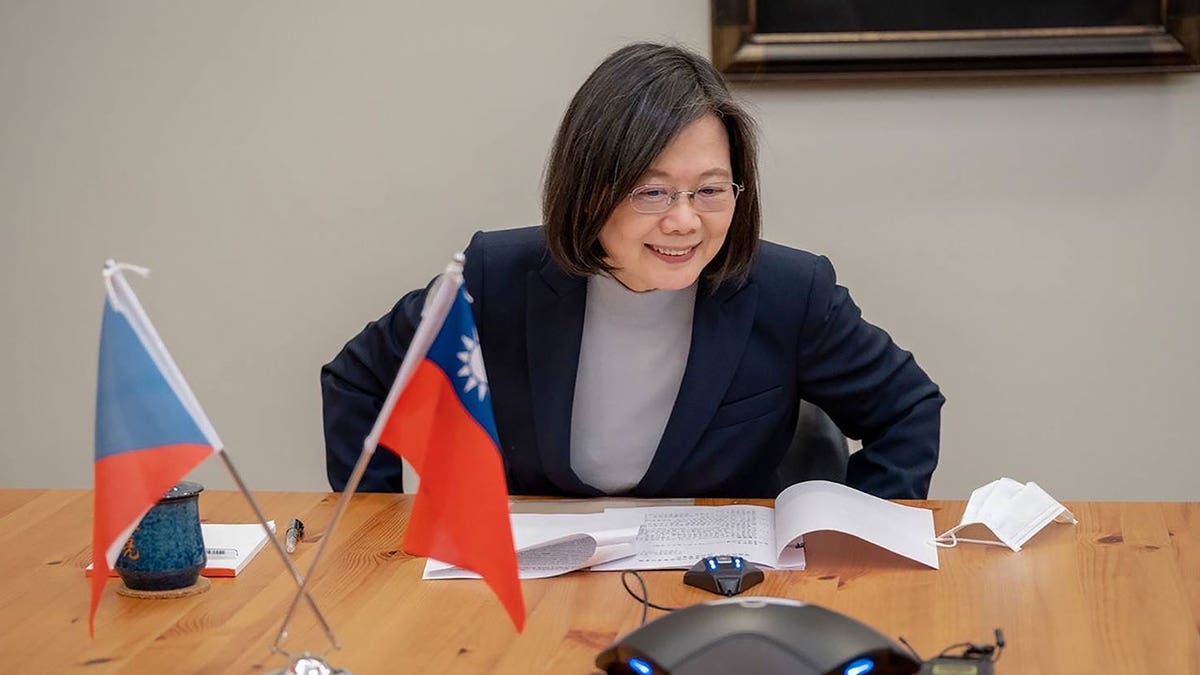Fox News Flash top headlines for January 31
Fox News Flash top headlines are here. Check out what's clicking on Foxnews.com.
China on Tuesday accused Czech President-elect Petr Pavel of challenging its hard line on national sovereignty by affirming ties with self-ruled Taiwan in a phone call with the island’s leader.
The call on Monday represents a symbolic breach of China’s attempts to cut off the already highly restricted foreign relations of the self-governing democracy, which Beijing claims as its own territory with no right to independent diplomatic recognition.
Chinese Foreign Ministry spokesperson Mao Ning said Pavel had acted in "defiance of China’s repeated dissuasion and complaints" and "trampled on China’s red line."
WHITE HOUSE HOPEFUL WAR WITH CHINA OVER TAIWAN 'NEVER COMES TO PASS': REPORT
"China strongly opposes and deplores this and has made solemn complaints with the Czech side," Mao said at a daily briefing, adding that the Czech Republic should take steps to "undo the negative impact of this incident so as to avoid irreparable damage to China-Czech relations."
Pavel, a retired army general, will succeed controversy-courting Milos Zeman in the largely ceremonial but prestigious post. Over his decade in office, Zeman has drawn criticism for his stances favoring Russia and China, authoritarian states that have strengthened relations since last year's invasion of Ukraine in a joint challenge to the U.S. and its allies.
Pavel, who ran as an independent, is a former chairman of NATO’s military committee, the alliance’s highest military body. He fully endorsed the Czech Republic’s military and humanitarian support for Ukraine in its fight against Russia’s invasion and stresses the importance of the country’s membership in the European Union and NATO.

Taiwan's President Tsai Ing-wen speaks with the Czech Republic's President-elect Petr Pavel through the phone in Taipei, Taiwan, on Jan. 30, 2023. (Taiwan Presidential Office via AP)
Czech Prime Minister Petr Fiala responded to the criticism from Beijing, saying, "The policy of the Czech Republic towards China has not changed and is in line with the policy of our allies. Czechia respects and represents its own one-China policy."
"As a sovereign state, it is us who decide whom we call or whom we meet. We traditionally have good economic, educational and research relations with democratic Taiwan. It is also necessary to respect that China is an important Asian trading partner. We continue in our tradition and we are stressing the need to protect common democratic values," he wrote in a tweet.
In the call, Taiwanese President Tsai Ing-wen said the two sides "enjoy deep ties and share the values of freedom, democracy, and human rights," the official Central News Agency said, quoting presidential spokesperson Lin Yu-chan.
CHINESE VESSELS AND AIRCRAFT APPEAR IN TAIWANESE WATERS AND AIRSPACE
Taiwan "looks forward to deepening exchanges and cooperation with the Czech Republic in key areas, including semiconductor design, talent cultivation in cutting-edge technologies, and supply chain restructuring," Lin was quoted as saying.
China in recent years has upped its threat to bring Taiwan under its control, by force if necessary, prompting new sales of tanks and missiles to the island by key ally the U.S. and steps by Tsai's administration to extend compulsory military service and bolster the domestic defense industry.
A string of visits in recent months by foreign politicians to Taiwan, including by then-U.S. House Speaker Nancy Pelosi and numerous politicians from the European Union, spurred displays of military might from both sides. China has repeatedly threatened retaliation against countries seeking closer ties with Taiwan, but its attempts at intimidation have sparked a backlash in popular sentiment in Europe, Japan, the U.S. and other nations.
CLICK HERE TO GET THE FOX NEWS APP
China expelled Lithuania’s ambassador, downgraded diplomatic ties and blocked trade with the Baltic country after it boosted relations with Taipei. Lithuania has since closed its embassy in Beijing and opened a trade office in Taiwan.
A former Japanese colony, Taiwan separated from mainland China in 1949 during a civil war and has never been under the control of China's ruling Communist Party.
Under relentless pressure from Beijing, Taiwan now has formal diplomatic ties with just 14 nations, mainly small states in the Caribbean and South Pacific, but maintains robust unofficial ties with more than 100 countries. European politicians, some of whose nations were formally dominated by the Soviet Union, have been among the most vocal in pursuing closer relations with Taiwan.









































